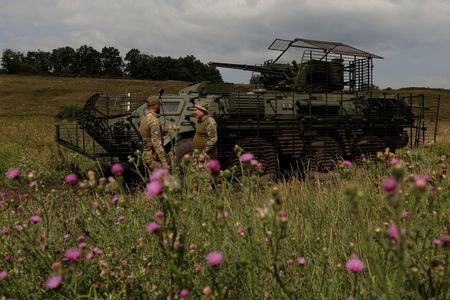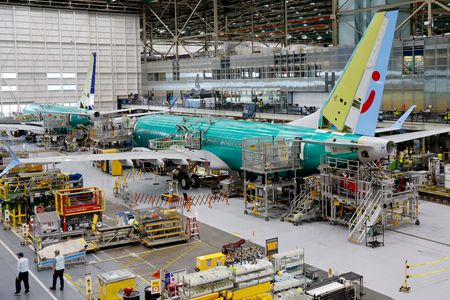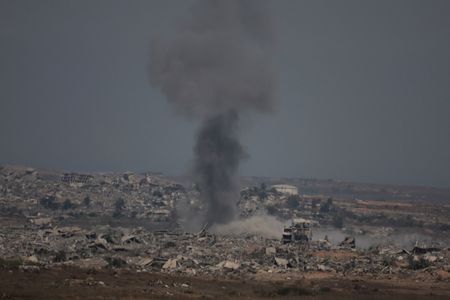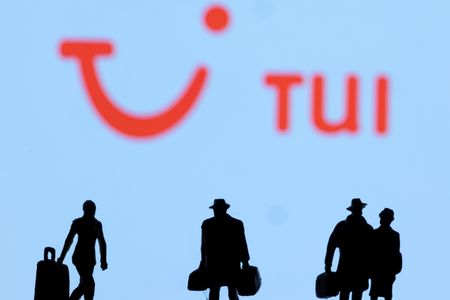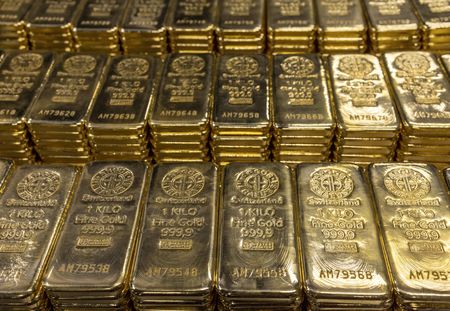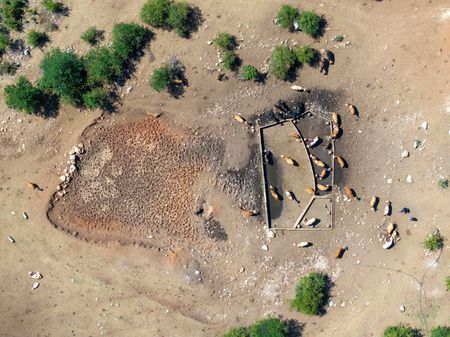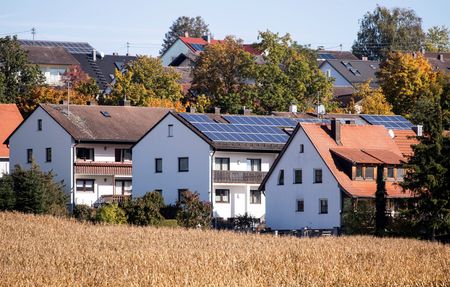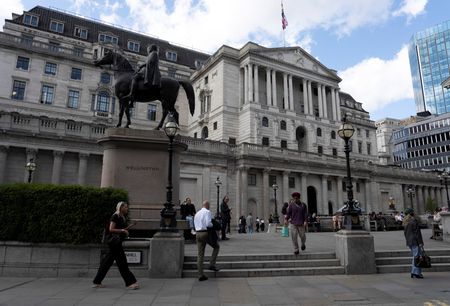By Lili Bayer and Andrew Osborn
BRUSSELS (Reuters) -Ukrainians must have the freedom to decide their own future, European Union member states said on Tuesday, weighing in ahead of talks between U.S. President Donald Trump and Russian President Vladimir Putin on Friday.
European leaders and Ukrainian President Volodymyr Zelenskiy plan to speak with Trump on Wednesday, before the summit in Alaska, amid fears that Washington, hitherto Ukraine’s leading arms supplier, might dictate unfavourable peace terms to Kyiv.
“The path to peace in Ukraine cannot be decided without Ukraine,” the leaders of all EU countries except Hungary said in a joint statement, adding that any peace deal must respect international law, including Ukraine’s independence and territorial integrity.
RUSSIA ADVANCES IN EASTERN UKRAINE
Trump has said any peace deal would involve “some swapping of territories to the betterment of both” Russia and Ukraine, prompting consternation in Kyiv and European capitals as virtually all the territory in question is Ukrainian.
Russian forces have made a sudden thrust further into eastern Ukraine near the coal mining town of Dobropillia, a move that may be designed to increase the pressure on Kyiv to cede land as the U.S. and Russian presidents prepare to meet.
Ukraine’s authoritative DeepState war map showed on Tuesday that Russian forces had advanced by at least 10 km (six miles) north in two prongs in recent days, part of their campaign to take full control of Ukraine’s Donetsk region.
The advance is one of the most dramatic in the last year.
Sergei Markov, a former Kremlin adviser, said the Russians had been able to advance due to “a partial collapse in the front” caused by Ukraine’s shortage of soldiers.
“This breakthrough is like a gift to Putin and Trump during the negotiations,” Markov said, suggesting it could heighten pressure on Kyiv to yield territory under any deal.
Kyiv’s military meanwhile said it had retaken two villages in the eastern region of Sumy on Monday, part of a small reversal in more than a year of slow, attritional Russian gains in the southeast.
Russia, which launched its full-scale invasion of Ukraine in February 2022, has mounted a new offensive this year in Sumy after Putin demanded a “buffer zone” there.
Kyiv and its European allies fear that Trump, keen to claim credit for making peace and seal new business deals with Moscow, could in effect reward Moscow for its 11 years spent in efforts to seize Ukrainian territory, the last three in open warfare.
EUROPEANS LINK UKRAINE TO OWN SECURITY
The EU statement stresses that a Ukraine capable of defending itself effectively is an integral part of any future security guarantees, adding that EU nations were ready to contribute further to security guarantees.
“Ukraine cannot lose this war and nobody has the right to pressure Ukraine into making territorial or other concessions, or making decisions that smack of capitulation,” Polish Prime Minister Donald Tusk said.
“I hope we can convince President Trump about the European position,” he told a government meeting.
Zelenskiy welcomed the EU statement, adding in a message on X that Russia was preparing new offensive operations.
“Indeed, we all support President Trump’s determination, and together we must shape positions that will not allow Russia to deceive the world once again,” he said.
However, Hungarian Prime Minister Viktor Orban, Putin’s principal ally in Europe, mocked the statement from his EU counterparts.
“The fact that the EU was left on the sidelines is sad enough as it is. The only thing that could make things worse is if we started providing instructions from the bench,” Orban said on X.
Trump had been recently hardening his stance towards Moscow, agreeing to send more U.S. weapons to Ukraine and threatening hefty trade tariffs on buyers of Russian oil in an ultimatum that has now lapsed.
Even so, the prospect of Trump hosting Putin on U.S. soil for the first U.S.-Russia summit since 2021 has revived fears that he might put narrow U.S. interests ahead of the security of European allies or broader geopolitics.
(Reporting by Lili Bayer, Alan Charlish, Sudip Kar-Gupta, Lidia Kelly, Krisztina Than, Andrew Osborn and Pavel Polityuk; writing by Ingrid Melander; editing by Kevin Liffey and Mark Heinrich)

